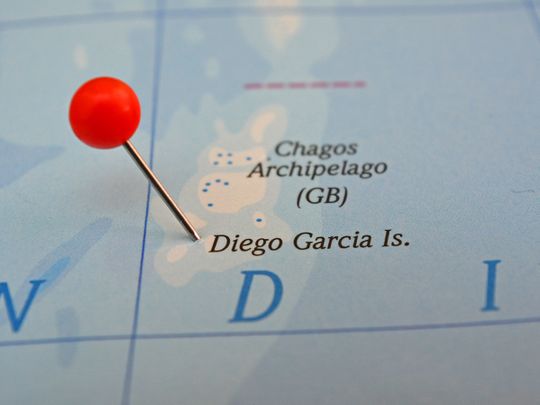
Talks between United Kingdom and Mauritius over the Chagos Archipelago that started last year appear to have stalled following a legal challenge claiming that the negotiations are unlawful as they “are being held without consulting … the Chagossian people.” Since then, only the prime ministers have had informal discussions.
Mauritius, a British colony until its independence in 1968, claims the remote Chagos Islands as its own territory.
Three years before independence, the UK severed the Chagos Islands from the rest of Mauritius, named it British Indian Ocean Territories (BIOT) and eventually leased 6,720-acre island Diego Garcia to the US in 1972 for military use. The base has proven to be strategically vital launch pad for the US military operations around the region.
Britain and Mauritius have sparred since the 1980s over the sovereignty of the Chagos; Mauritius claiming that the territory was illegally dismembered from Mauritius — a claim upheld by the International Court of Justice (ICJ).
The UN General Assembly, however formally requested the International Court of Justice (ICJ) in 2017, to give an advisory opinion on the separation of the Chagos Archipelago from Mauritius. In 2019, the ICJ recommended return of islands to Mauritian sovereignty. The General Assembly followed it by calling for a swift end to the British control over the islands.
Britain has declared its intention to conclude an “agreement on the basis of international law to resolve all outstanding issues,” which hints at transfer of sovereignty back to Mauritius in line with the ICJ opinion. But there are several tricky questions that would need to settled first.
Will Mauritius regain full sovereignty?
If so, what will be the status of the American facilities and the personnel deployed there. How will Mauritius manage the visiting nuclear armed or powered American ships and aircraft especially in view of the African Nuclear Free Zone Treaty commonly known as Pelindaba (Named after South Africa’s main nuclear research centre) Treaty, which forbids parties (Mauritius) to station nuclear explosives on its territory, including those carried by foreign vessels and aircraft. Then there is also the question of return of natives and their successors who were forcibly evicted from the territories.
For Mauritian leadership regaining Chagos is also about cashing on the country’s strategic location. Leasing space for military bases provide significant revenue for countries that capitalise on their location. Djibouti, for instance makes money in direct renting apart from the millions from ancillary consumer sectors. Mauritius, in contrast is deprived of economic benefits due to the colonial structure which it hopes to reverse soon.
It is believed that Mauritius has offered a 99-year lease to the Americans for Diego Garcia but under Mauritian sovereignty the territory would come under several treaties with additional obligations. In the talks thus far held Britain has reportedly suggested to Mauritius that Americans be engaged too.
In his written statement to announce talks with Port Louis, James Cleverly, then British Foreign Secretary appeared to reaffirm this commitment by insisting that “any agreement between our two countries will ensure the continued effective operation” of the base on Diego Garcia.
The settlement conundrum depends almost entirely on what can be agreed about the future of the American base on Diego Garcia, the largest island of the Chagos group.
Sajjad Ashraf served as an adjunct professor at the Lee Kuan Yew School of Public Policy at the National University of Singapore for 2009 to 2017. He was a member of Pakistan Foreign Service from 1973 to 2008 and served as an ambassador to several countries






